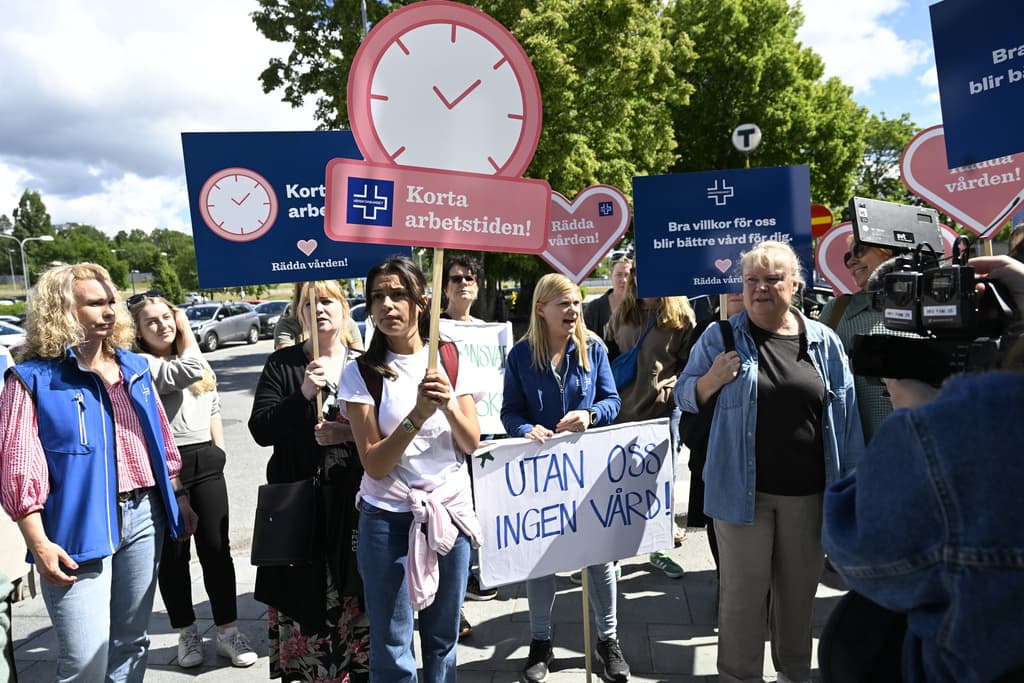Further 1,300 people, including midwives and nurses, are taking part in the extended care strike.
It's tough working in healthcare. We need shorter working hours, says nurse Anastasia Alvbåge.
Meanwhile, a solution to the conflict appears distant.
The conflict between the Swedish Association of Health Professionals and the employer Swedish Municipalities and Regions (SKR) has been ongoing since April. What started with an overtime blockade escalated on 4 June when several regions went on strike.
Since last week, around 2,000 people have been on strike. The strike is now being expanded with an additional 1,300 midwives, biomedical analysts, radiology nurses, and nurses.
We are escalating the strike because we don't see that our main issue is being met: being able to cope with a whole working life, says union chair Sineva Ribeiro.
More regions
Among others, Region Värmland and healthcare advisory services in three regions are affected. Previously, the union had also threatened to strike in Region Västmanland, but it was withdrawn after local negotiations.
The extended strike also affects several healthcare centres, including in Malmö and Lund. The region believes that the measures there are hazardous to society and demands that the union calls off the strike.
"We see that the Swedish Association of Health Professionals' strike will affect the general public by delaying diagnoses and treatments, with significant risks of serious healthcare injuries," says Pia Lundbom, healthcare director in Skåne, in a comment.
Nurse Anastasia at Danderyd Hospital in Stockholm does not believe that patients will be affected. She thinks that a change is necessary for the staff to cope.
It's too stressful, with too few staff and long working hours, she says.
"Not the time for offers"
A solution to the conflict does not appear to be within reach. According to mediator Gunilla Runnquist, it is not currently the time for any offer that both parties can accept.
"The mediators continue their discussions with the parties to move forward towards an agreement," she writes in an SMS to TT.
The Swedish Association of Health Professionals believes that it is mainly the demand for gradually reduced working hours that the opposing party is struggling to accept. SKR has previously stated that they cannot meet the demand for reduced working hours due to the economic situation.
SKR also claims that the Swedish Association of Health Professionals has rejected all proposals from them and the mediators.
Karin Rader/TT
Malin Johanson/TT
Facts: How the strike affects
TT
This is how the new strike affects the affected regions, according to the letter about expected effects that SKR sent to the Mediation Institute:
1177 healthcare advisory services.
Healthcare centres and emergency services.
Planned surgery, including orthopaedics, urology, women's healthcare, and medicine.
Ward care, including post-operative care and stroke care.
Laboratories.
Blood donation and blood products.
Regional and national preparedness and security.
Source: SKR






